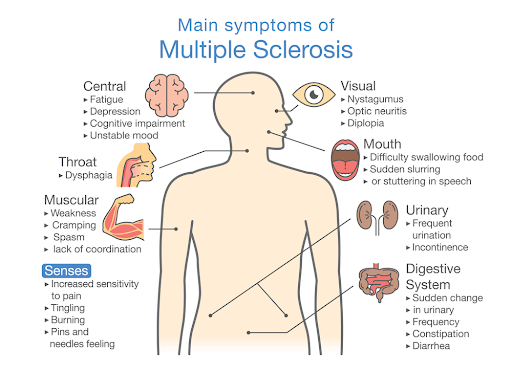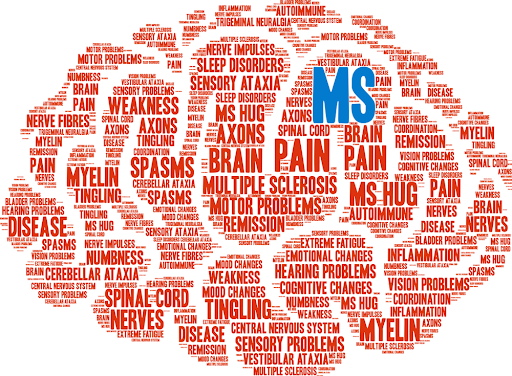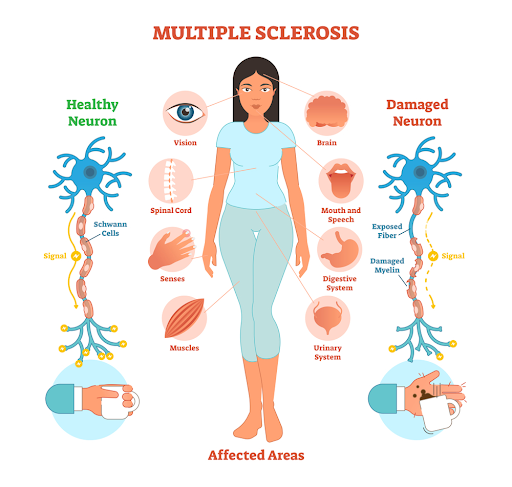Multiple sclerosis (MS) is a degenerative disease that affects the nervous system. The symptoms of MS can be debilitating, and patients often turn to marijuana for relief. People with MS have been getting great results treating the condition with cannabis. But how does marijuana work with MS? Let’s take a look.
Symptoms of Multiple Sclerosis
There are two main ways in which marijuana can help alleviate the symptoms of MS. First, marijuana can help reduce inflammation throughout the body. This is beneficial because inflammation is one of the main drivers of MS. Second, marijuana can help reduce muscle spasms. This is important because muscle spasms are one of the most common and debilitating symptoms of MS.
Marijuana also has other potential benefits for people with MS. For example, marijuana can help improve sleep, increase appetite, and reduce anxiety. However, it’s important to note that not all of these benefits have been proven in clinical trials.


Multiple Sclerosis-Approved for Medical Marijuana (MMJ)
If you’re considering using marijuana to treat your MS, you should speak with your doctor first. While marijuana can provide some relief from the symptoms of MS, it’s not a cure-all. In some cases, marijuana may even make some symptoms worse. Marijuana may affect cognition so it’s essential to work with a marijuana doctor that understands your medical history, and previous treatments to figure out if marijuana is right for you. If the doctor agrees that the benefits outweigh the risks, they will most likely approve you for a medical card that allows you to purchase medical-grade cannabis legally in states where medical marijuana is approved.
Legal & Medical Disclaimer
The information provided on this blog is for general informational and educational purposes only and is not intended as, nor should it be considered a substitute for, professional medical advice, diagnosis, or treatment. Always seek the advice of your physician or other qualified health provider with any questions you may have regarding a medical condition or treatment and before undertaking a new health care regimen. Never disregard professional medical advice or delay in seeking it because of something you have read on this website.
The content on this blog is provided “as is” and no representations are made that the content is error-free. The website takes no responsibility for errors or omissions in the content of this blog or other websites or resources that may be referenced or linked to herein. The website’s content is not intended to recommend or endorse any specific tests, physicians, procedures, opinions, or other information that may be mentioned on the site.
By using this blog, you agree to the foregoing terms and conditions, which may from time to time be changed or supplemented by this website. If you do not agree to the foregoing terms and conditions, you should not use this blog.
The information provided on this blog is for general informational and educational purposes only and is not intended as, nor should it be considered a substitute for, professional medical advice, diagnosis, or treatment. Always seek the advice of your physician or other qualified health provider with any questions you may have regarding a medical condition or treatment and before undertaking a new health care regimen. Never disregard professional medical advice or delay in seeking it because of something you have read on this website.
The content on this blog is provided “as is” and no representations are made that the content is error-free. The website takes no responsibility for errors or omissions in the content of this blog or other websites or resources that may be referenced or linked to herein. The website’s content is not intended to recommend or endorse any specific tests, physicians, procedures, opinions, or other information that may be mentioned on the site.
By using this blog, you agree to the foregoing terms and conditions, which may from time to time be changed or supplemented by this website. If you do not agree to the foregoing terms and conditions, you should not use this blog.



